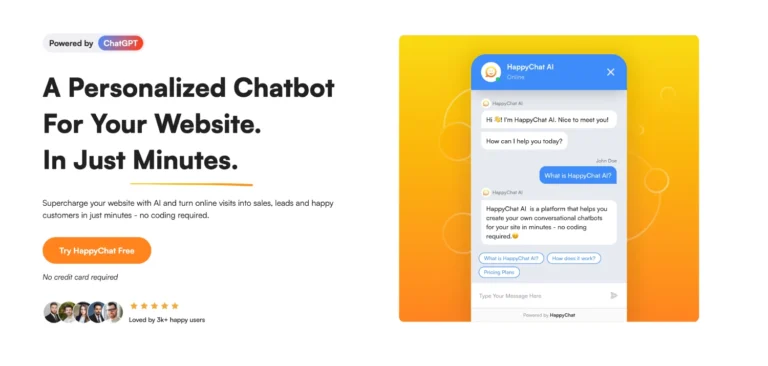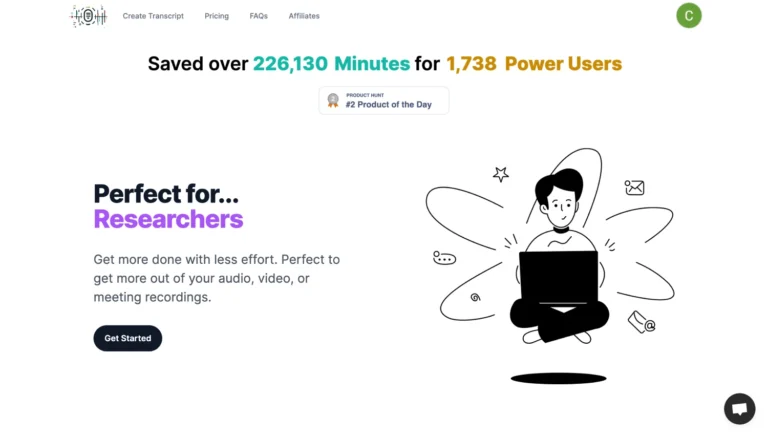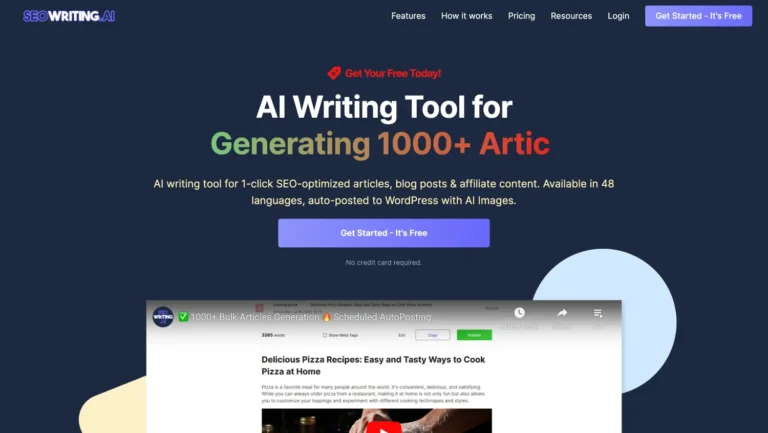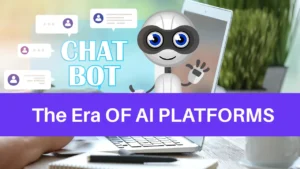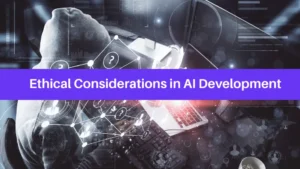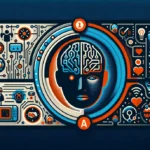Table of Contents
Artificial intelligence (AI) has transformed the way businesses operate. AI platforms have revolutionized various aspects of a company, from customer service to data analysis. With AI technology becoming more accessible, businesses of all sizes can leverage it for innovation and growth.
In this section, we’ll introduce you to the top AI platforms available for businesses looking to drive innovation and maximize their potential. We’ll explore the possibilities of AI technology and its impact on your operations.
Key Takeaways
- AI platforms can transform various aspects of a business, from data analysis to customer service.
- Choosing the right AI platform is crucial for compatibility, data security, and scalability.
- Leading AI platforms for enterprise solutions, data analysis, customer service, automation, predictive analytics, natural language processing, and image and video recognition offer a wide range of applications across industries.
- AI platforms can streamline operations, automate repetitive tasks, and optimize workflows, driving efficiency and productivity.
- AI platforms can provide personalized experiences and recommendation systems, boosting customer engagement.
The Growing Importance of AI in Business
The rise of artificial intelligence (AI) has had a profound impact on the business world. Today, AI is no longer a futuristic concept but a reality that businesses across industries are embracing to drive innovation and growth. From predicting consumer behavior to automating processes, AI has the potential to revolutionize the way businesses operate.
Business leaders are increasingly recognizing the importance of AI in improving operations and gaining a competitive edge. A survey by Forbes Insights found that 60% of the companies surveyed had already implemented AI in some form, while 41% planned to do so within the next two years.
The use of AI in business can bring numerous benefits, including:
- Improved efficiency and productivity
- Cost savings through automation
- Enhanced customer experiences through personalization and automation
- Better decision-making through data analysis and insights
Companies that fail to embrace AI risk falling behind the competition. In today’s fast-paced business environment, leveraging AI can be the key to staying ahead of the curve.
Choosing the Right AI Platform
AI technology has become an essential component for businesses looking to innovate and stay competitive. However, choosing the right AI platform can be a challenging task. Here are some key factors to consider when selecting an AI platform:
- Compatibility: Ensure that the AI platform you choose is compatible with your existing systems. Integration should be seamless and not disrupt existing workflows.
- Data Security: Data security is critical when it comes to AI solutions. Make sure the platform you select adheres to industry standards and regulations, and your data will be safe and secure.
- Scalability: As your business grows, so should your AI platform. Choose a solution that can scale with your needs.
- Functionality: Different platforms offer different functionalities. Assess what key features you require and select the platform that offers them.
- Support: Ensure that the platform you choose has a reliable support system in place. This will help you address any issues or problems that may arise in the future.
By considering these factors, you can select the right AI platform to help take your business to the next level. Remember, the right platform can help you reduce costs, increase efficiency, and drive growth.
Leading AI Platforms for Enterprise Solutions
When it comes to implementing AI within an enterprise, it’s crucial to choose the right platform. From compatibility with existing systems to scalability and data security, several factors play a crucial role in making an informed decision. Here are some of the leading AI platforms designed for enterprise solutions.
IBM Watson
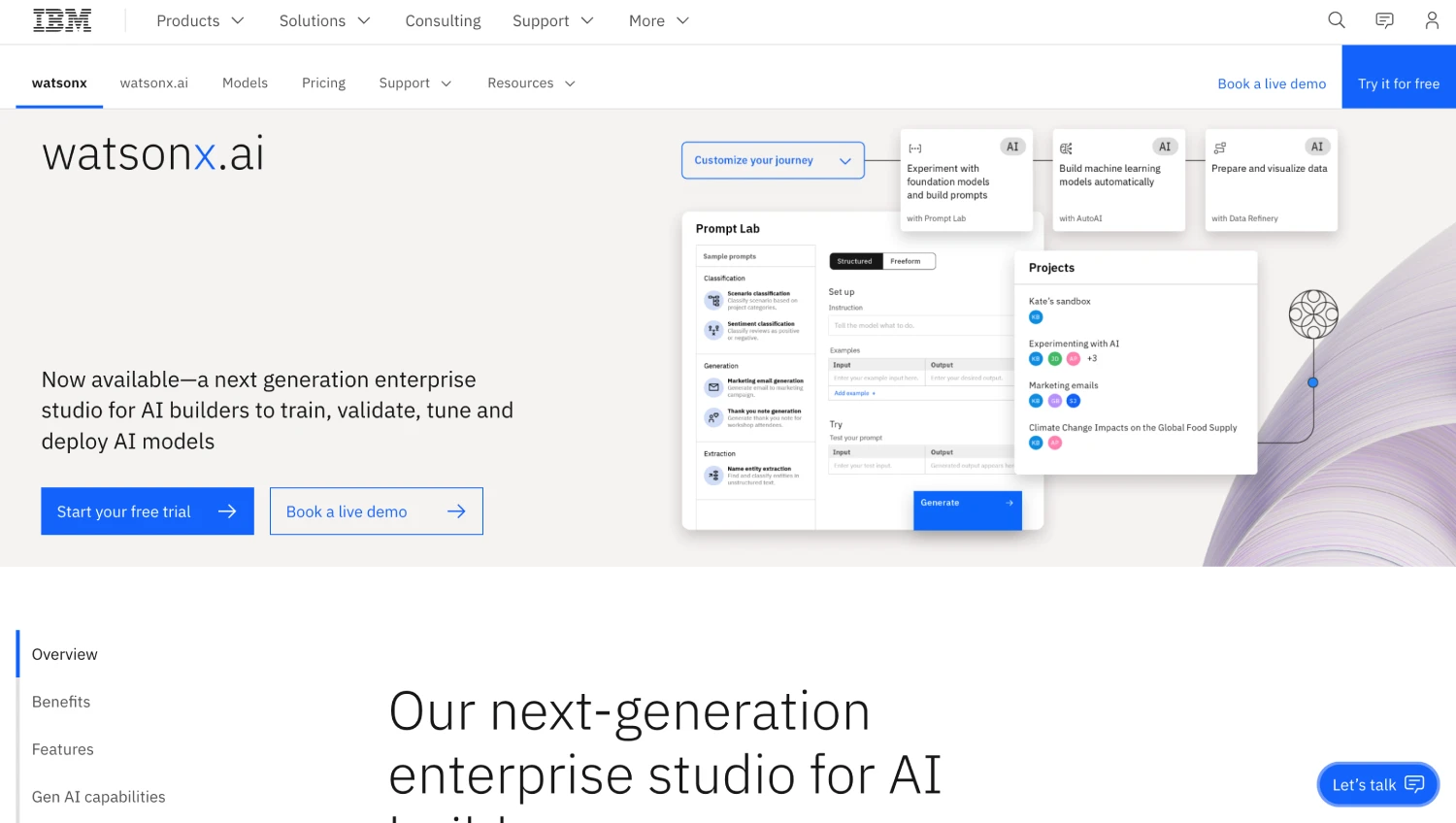
IBM Watson is a powerful AI platform that can process vast amounts of data to derive insightful business intelligence. With its natural language processing capabilities, Watson can understand and analyze unstructured data, enabling businesses to gain valuable insights into customer behavior, market trends, and potential risks. IBM Watson also offers a range of services, including chatbots, speech recognition, and language translation, making it an all-in-one solution for many enterprise needs.
Amazon Web Services (AWS) AI
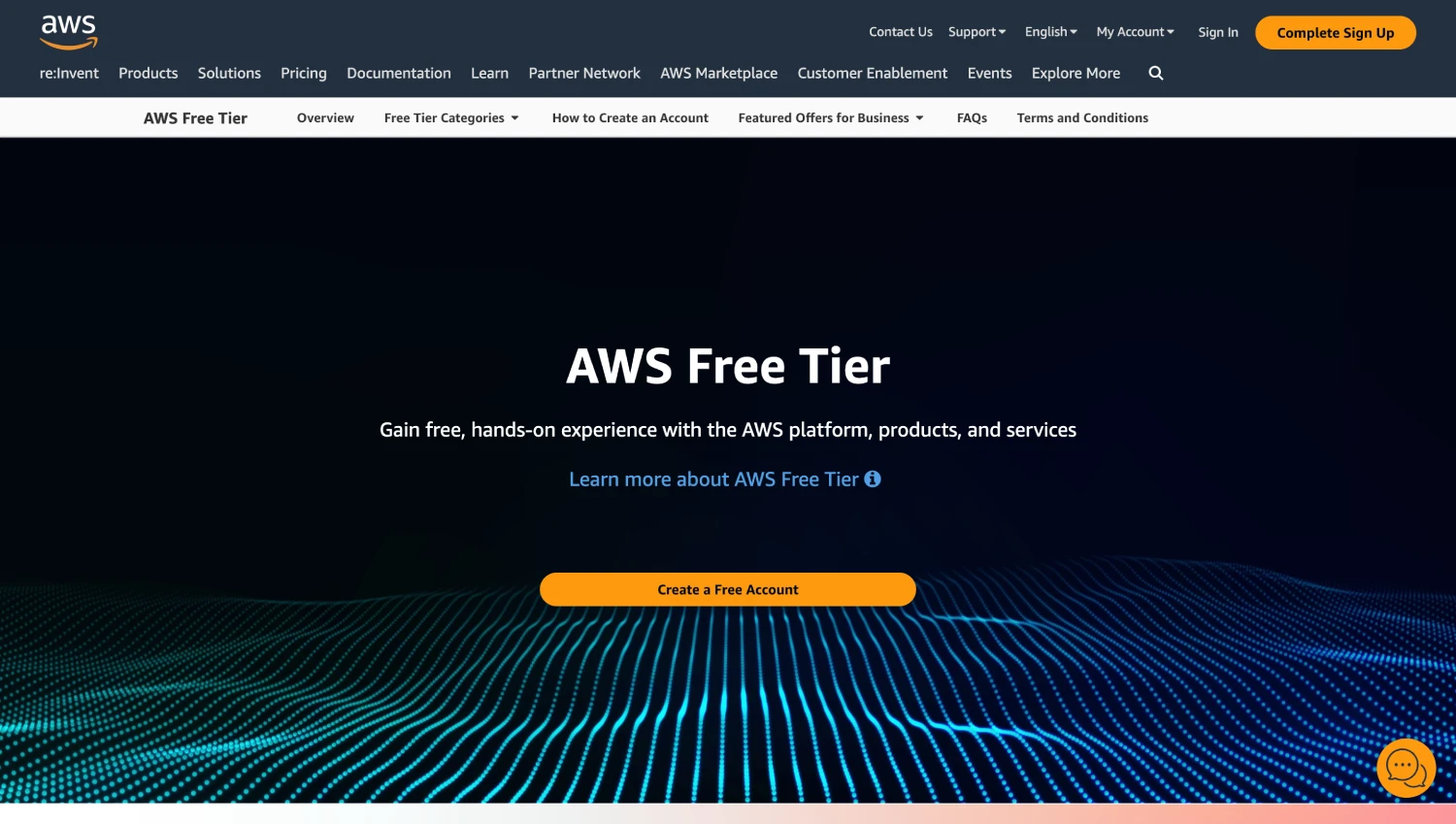
Amazon Web Services (AWS) AI is a comprehensive AI platform that includes a range of tools for advanced machine learning, natural language processing, and computer vision. AWS AI offers a variety of APIs, including Amazon Rekognition for image analysis, Amazon Polly for speech synthesis, and Amazon Lex for building chatbots. AWS also provides SageMaker, a managed service that helps developers build, train, and deploy machine learning models in the cloud.
Google Cloud AI
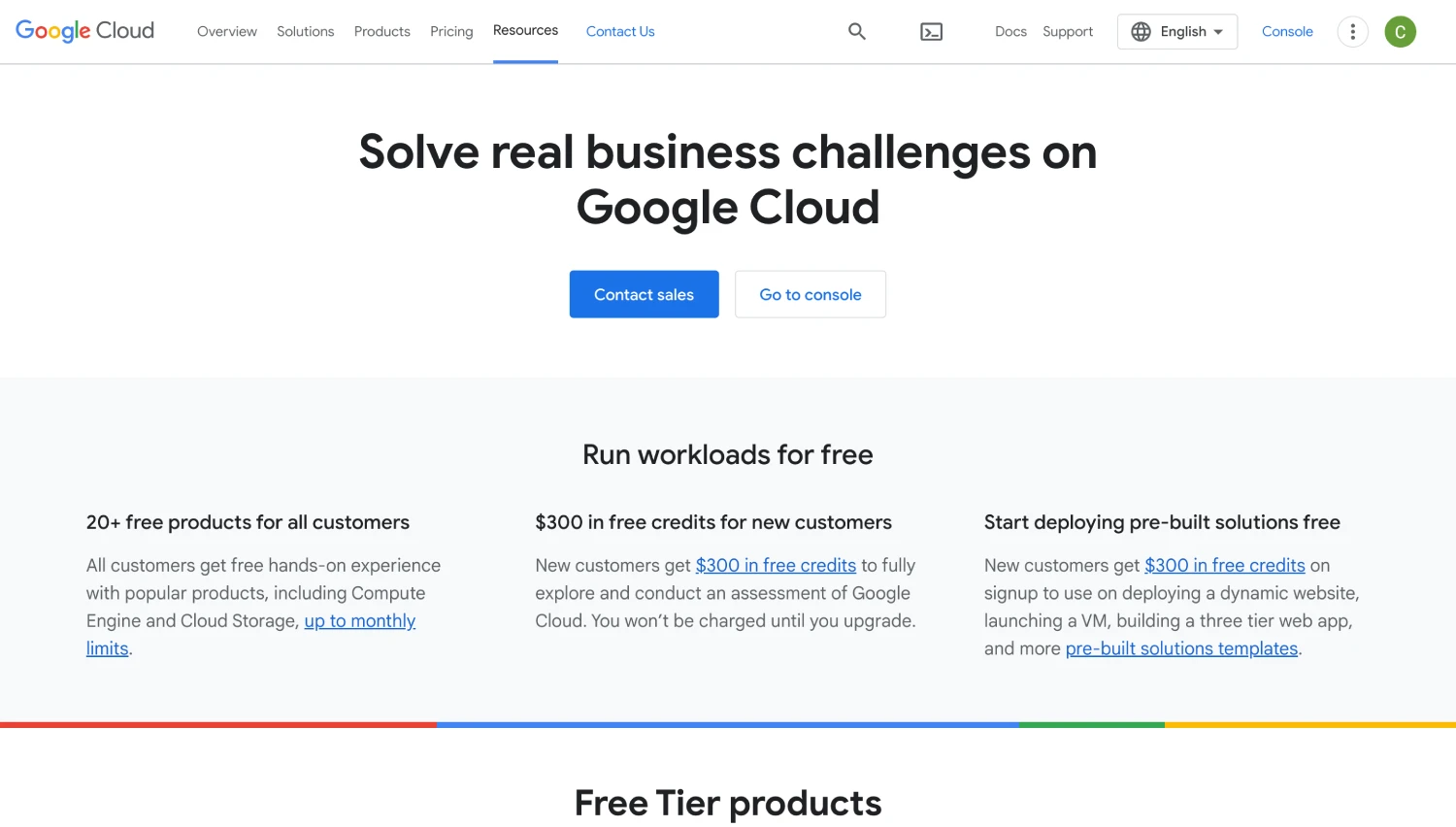
Google Cloud AI is another comprehensive AI platform that offers powerful machine learning and data analytics tools. Google Cloud AI includes a range of APIs, including Vision API for image analysis, Speech-to-Text API for speech recognition, and Translate API for language translation. Google Cloud AI also offers AutoML, a platform that allows developers and businesses to build custom machine learning models with minimal coding.
Microsoft Azure AI
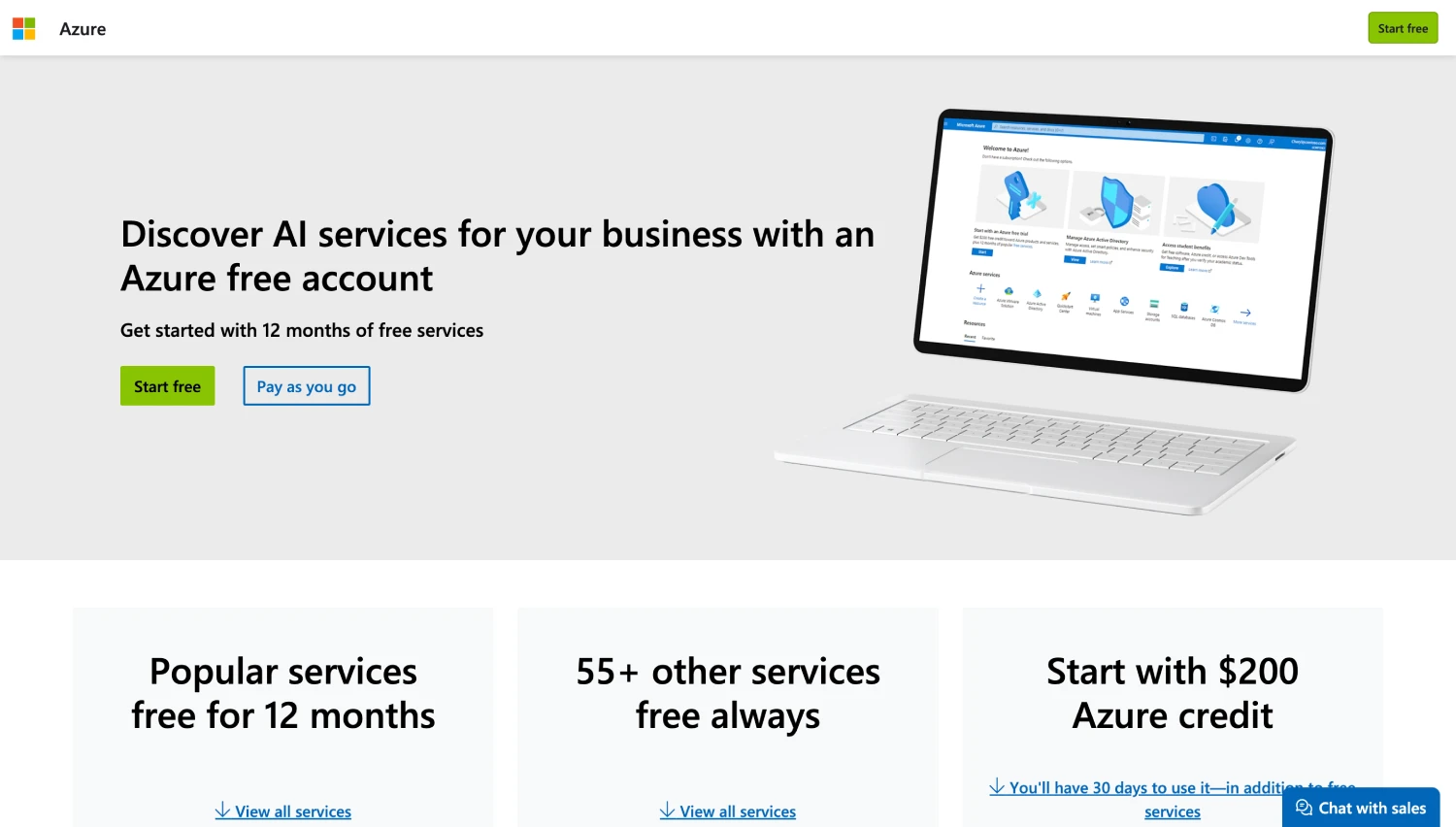
Microsoft Azure AI is an AI platform that provides a suite of tools for natural language processing, computer vision, and machine learning. Azure Cognitive Services includes a range of APIs, including Text Analytics API for sentiment analysis, Computer Vision API for image analysis, and Language Understanding (LUIS) for language understanding. Azure also offers Azure Machine Learning, a platform that enables businesses to build and deploy machine learning models at scale.
Salesforce Einstein
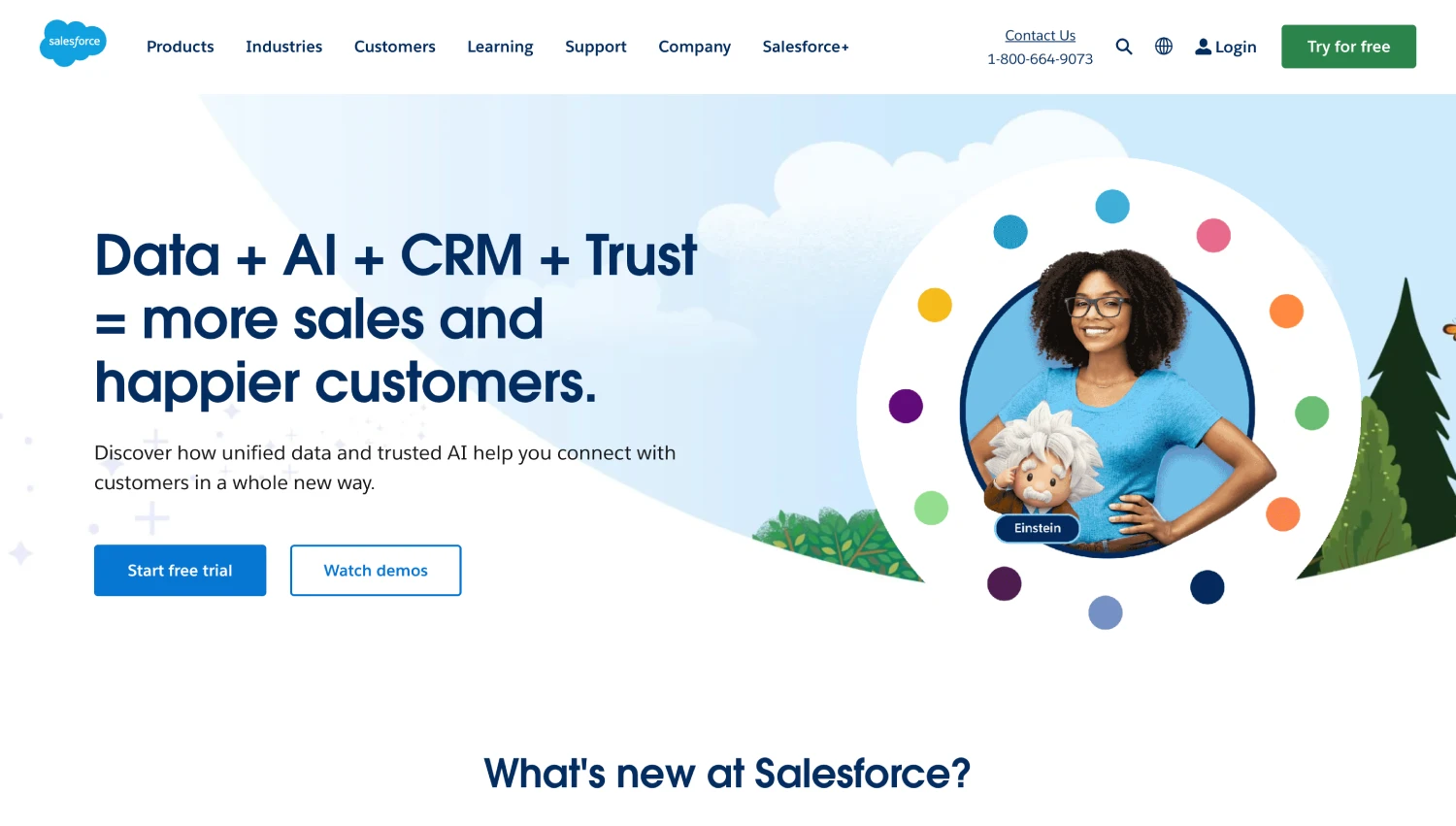
Salesforce Einstein is an AI platform designed specifically for businesses looking to enhance their customer experience. With its powerful data analytics tools, Einstein can provide actionable insights that drive customer engagement and loyalty. Salesforce Einstein includes a range of features, including predictive lead scoring, personalized recommendations, and automated workflows, making it an all-in-one solution for many enterprise needs.
Choosing the right AI platform for your enterprise can be a challenging task, but by considering factors such as compatibility, scalability, and security, you can make an informed decision. Whether you’re looking to drive customer engagement, optimize workflow, or gain valuable insights into your business operations, the AI platforms discussed above offer a range of solutions to meet your enterprise needs.
AI Platforms for Data Analysis and Insights
Are you ready to unlock the power of data to drive your business forward? Look no further than these leading AI platforms for data analysis.
IBM Watson Analytics
| Key Features | Intuitive interface, natural language processing, advanced analytics, predictive modeling |
|---|---|
| Benefits | Quick insights, automated reports, easy to use for non-technical users, ability to connect to various data sources |
“Watson Analytics has really helped us to understand our business better. The insights we’ve gained have allowed us to make data-driven decisions that have positively impacted our revenue.”
Microsoft Power BI
| Key Features | Customizable dashboards, real-time reporting, natural language query, data visualization |
|---|---|
| Benefits | User-friendly, affordable, integrates with Microsoft Office, ability to share dashboards with colleagues and stakeholders |
SAS Visual Analytics
| Key Features | Advanced analytics, data exploration, customizable dashboards, real-time reporting |
|---|---|
| Benefits | Assists in identifying patterns, interactive and user-friendly, integrates with popular data sources, vertical-specific analytics (healthcare, finance, etc.) |
With these AI platforms for data analysis, you’ll be able to make informed decisions, optimize operations, and maximize your potential. Don’t miss out on the benefits of these powerful tools.
AI Platforms for Customer Service Excellence
Customer service is a critical aspect of any business, and AI has revolutionized the way organizations provide support and assistance to their customers. AI-powered platforms can automate customer interactions, provide personalized support, and improve overall customer satisfaction. Here are some of the leading AI platforms for customer service excellence:
| AI Platform | Features | Benefits |
|---|---|---|
| IBM Watson Assistant | Chatbot capabilities, Natural Language Processing (NLP), integration with various channels including phone and messaging apps. | Personalized and efficient customer service, reduced workload for customer support teams, lower costs. |
| Amazon Connect | Voice and chat support, Interactive Voice Response (IVR) system, integration with other Amazon tools such as Alexa. | Seamless customer experience, efficient call routing, improved agent productivity. |
| Zendesk | AI-driven chat, automated ticket creation and routing, integration with various support channels including email, chat, and social media. | Improved customer service efficiency and productivity, streamlined support ticket management, personalized support. |
These platforms can significantly reduce wait times for customers and provide round-the-clock support, ensuring that customer inquiries are addressed promptly. AI platforms can also analyze customer data to provide personalized support and identify emerging trends in customer service inquiries, enabling organizations to proactively address customer concerns before they escalate beyond control.
Conclusion:
AI platforms can transform the way businesses provide customer service, automating routine tasks and streamlining support processes. Organizations that invest in the right AI platform for their needs will reap the benefits of improved customer satisfaction, increased efficiency, and ultimately, higher profits. Choose one of the above AI platforms for customer service excellence and take your customer experience to the next level.
AI Platforms for Automation and Efficiency
Artificial Intelligence (AI) platforms are revolutionizing the way businesses operate, transforming manual and repetitive tasks into intelligent and automated processes. By leveraging the power of AI, businesses can streamline their operations, minimize errors, and increase overall efficiency.
Intelligent Process Automation (IPA)
Intelligent Process Automation (IPA) platforms use AI to automate complex business processes that involve decision-making, natural language processing, and unstructured data. These platforms are ideal for businesses looking to automate tasks that require cognitive skills, such as customer service, data entry, and analysis.
Robotic Process Automation (RPA)
Robotic Process Automation (RPA) platforms use AI and machine learning to automate simple and repetitive tasks, freeing up time for employees to focus on more important activities. RPA platforms can be integrated with existing systems and applications, reducing the need for manual intervention and minimizing errors.
Key Benefits of AI Platforms for Automation and Efficiency
- Increased productivity and operational efficiency
- Minimized errors and reduced manual intervention
- Improved accuracy and consistency
- Ability to handle large volumes of data
- Cost savings and higher ROI
When choosing an AI platform for automation and efficiency, it’s important to consider factors such as compatibility with existing systems, scalability, and data security. By selecting the right platform for your business needs, you can unlock the full potential of AI and drive business growth.
AI Platforms for Predictive Analytics
For businesses looking to gain a competitive edge, predictive analytics has become a key element of successful decision-making. Predictive analytics uses AI algorithms to analyze data from multiple sources, identifying patterns and trends that can inform future outcomes. This allows businesses to anticipate customer behavior, forecast market trends, and identify potential risks before they occur.
When it comes to choosing the right AI platform for predictive analytics, there are several factors to consider. The platform should have the ability to handle large amounts of data and provide accurate predictions in real-time. It should also be user-friendly, with intuitive interfaces and customizable dashboards. Additionally, data security is a critical concern, so the platform should have robust security measures in place.
| AI Platforms for Predictive Analytics | Key Features and Benefits |
|---|---|
| IBM Watson Studio | Offers a range of predictive analytics tools, supports multiple programming languages, and provides seamless integration with existing systems. |
| H2O.ai | Provides fast and accurate predictive modeling, supports a range of algorithms, and offers easy integration with popular data sources. |
| DataRobot | Automates the entire predictive analytics process, offers a user-friendly interface, and provides advanced explainability tools that help users understand how predictions are made. |
| SAS Analytics | Provides a comprehensive suite of predictive analytics tools, offers customizable workflows and dashboards, and enables easy collaboration across teams. |
These leading AI platforms for predictive analytics can help businesses generate insights that drive growth and improve their bottom line. With accurate predictions and real-time analytics, businesses can make data-driven decisions that give them a competitive edge in today’s fast-paced marketplace.
AI Platforms for Natural Language Processing
One of the most exciting AI applications is natural language processing (NLP), which enables machines to understand and interpret human language. This technology is powering the development of chatbots, voice assistants, and other innovative solutions that enhance communication and customer engagement.
AI platforms that excel in NLP are essential for businesses that want to leverage this technology. Here are some of the leading platforms:
| Platform | Key Features |
|---|---|
| Google Cloud Natural Language API | Named entity recognition, sentiment analysis, syntax analysis |
| IBM Watson Language Translator | Translation for 60+ languages, customization options, cloud-based |
| Amazon Comprehend | Sentiment analysis, entity recognition, topic modeling |
These platforms are versatile, powerful, and easy to integrate with other systems. They offer advanced features such as sentiment analysis, syntax analysis, and entity recognition, enabling businesses to extract valuable insights from customer feedback, social media posts, and other sources of text data.
“NLP is transforming the way businesses interact with their customers, enabling them to provide personalized and efficient service at scale.”
However, selecting the right NLP platform for your business can be challenging. You need to consider factors such as compatibility with your existing systems, ease of use, and cost-effectiveness. Some platforms offer customization options and support for multiple languages, while others are designed for specific use cases.
- Identify your business needs and goals.
- Research the available NLP platforms and their features.
- Choose a platform that aligns with your requirements and budget.
- Integrate the platform into your systems and start leveraging the power of NLP.
By selecting the right AI platform for natural language processing, you can unlock the full potential of this technology and improve communication, productivity, and customer satisfaction.
AI Platforms for Image and Video Recognition
AI-powered platforms have revolutionized the way businesses analyze and understand images and videos. These platforms use advanced computer vision technology to identify objects and patterns, recognize faces, and analyze video content.
Whether you’re working in e-commerce, media, or healthcare, there are AI platforms available that can help optimize your image and video recognition processes. Here are some of the leading platforms:
| AI Platform | Features and Capabilities |
|---|---|
| Amazon Rekognition | Object and scene detection, facial analysis, text detection, content moderation |
| Google Cloud Vision | Image labeling, facial recognition, OCR, landmark detection, content moderation |
| IBM Watson Visual Recognition | Image and video analysis, object detection, facial recognition, custom training models |
| Microsoft Azure Computer Vision | Image and video analysis, object detection, text recognition, facial recognition, content moderation |
These AI platforms can help businesses automate image and video recognition processes, saving time and improving accuracy. They can also be used to extract valuable insights from visual data, such as identifying trends or detecting anomalies.
Image and video recognition technology has a wide range of applications in various industries. In e-commerce, businesses can use image recognition to automatically tag products in images and improve search functionality. In healthcare, image recognition can be used to assist with medical diagnosis and identify health issues. In media and entertainment, video recognition can be used to analyze viewer behavior and personalize content recommendations.
AI Platforms for Personalization and Recommendation Systems
One of the key advantages of AI technology is its ability to personalize user experiences and offer tailored recommendations. By analyzing user behavior and preferences, AI platforms can provide relevant content and product suggestions, boosting engagement and driving sales.
Here are some of the top AI platforms for personalization and recommendation systems:
| Platform Name | Main Features |
|---|---|
| Optimizely | Offers A/B testing, customer segmentation, and personalization features for web and mobile applications. |
| Dynamic Yield | Provides personalized recommendations, product discovery, and A/B testing capabilities for e-commerce businesses. |
| Lattice Engines | Uses AI to create personalized account-based marketing campaigns and optimize lead generation for B2B companies. |
In addition to these platforms, many e-commerce businesses use AI-powered chatbots to offer personalized customer service and recommendations. By analyzing customer inquiries and behavior, chatbots can provide tailored support and suggest products that meet the customer’s needs.
Overall, AI-powered personalization and recommendation systems are becoming increasingly important for businesses in all industries. By leveraging the power of AI, organizations can deliver more relevant and engaging experiences for their customers, driving loyalty and revenue growth.
